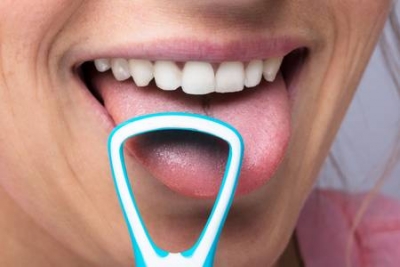
Struggling with bad breath? You’re not alone.
Learn about sports mouthguards and their benefits, how to choose a good sports mouthguard, and get tips to encourage your child to wear them. Stay Safe, Play Smart!
As parents, we know that falls and injuries are part of an athletic lifestyle, but the thought of our little ones falling face-forward or taking a hard hit from a fellow teammate can still send our hearts racing.
What if there’s a way to get better peace of mind for your kids’ safety in sports and prevent injuries too?
Allow us to introduce you to the sports mouthguard!
This piece of protective gear may be small, but it’s your MVP for safeguarding kids against a plethora of mouth and face injuries. Here’s everything you need to know about this game-changing mouthpiece.
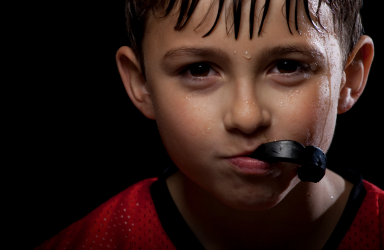
Sports mouthguards are a simple device worn over the top row of teeth, providing protection against injuries to teeth and lips.
Wearing a layer of protective gear over our pearly whites also reduces jawbone trauma by cushioning the shock during a hit. You could say it also avoids the shock you might get from how expensive tooth replacement can be!
So when should children start wearing a sports mouthguard? Kids can usually start wearing a mouthguard for sports as early as age 6.
We recommend getting your child a sports mouthguard as soon as they start participating in regular sports.
Sports mouthguards are typically worn for contact sports, but they also provide protection for any physical activity with high-impact falls, such as gymnastics.
It might take some getting used to, but there are ways to make it comfortable for your child. It starts with knowing which type to invest in.
Sports mouthguards are usually made from rubber or a kind of thermoplastic material that is heated to mould to the shape of teeth. There are generally three different types of sports mouthguards ranging from affordable to expensive. Each of them have different specifications that can affect comfort and wearability.
Stock mouthguards come ready-to-wear and are usually made from rubber, making them cheaper and easier to remove. However because they are pre-formed, they don’t fit the individual very well and can feel bulky for some.
They are also known to limit breathing and talking. Perhaps not the best idea when your child needs to breathe intensely and communicate while participating in a team sport.
These also come in a pre-formed shape but with the option of alteration. The mouthguard needs to be boiled in water, and then the wearer bites into its warm plastic to create a customised fit. These can easily be found in most sports stores or pharmacies. However because they are not professionally fitted to the child’s unique mouth size and teeth shape, it can still get dislodged easily during contact.
Custom-made sports mouthguards are the safest and most effective choice. They are only produced at a dental clinic, made from professional dental-grade, BPA-free materials.
Your dentist creates a mould of your child’s teeth and uses it to make a personalised mouthguard just for them. Although they are the most costly in the range, you can count on a custom-made mouthguard to do its job when your young athlete is in the thick of action.
Because it’s made to fit their unique mouth size and teeth structure, it stays in place and feels super comfy. You won’t have difficulty convincing your child to wear one!
The most obvious return of investment a sports mouthguard offers is reliable protection for dental injuries such as chipped teeth or full tooth knockouts. Whether it’s an accidental elbow jab in basketball or an unexpected full body collision in soccer, sports mouthguards act as a shield, keeping that winning smile intact!
Beyond just safeguarding teeth, sports mouthguards also provide essential protection for the mouth and jawbone. It absorbs the force of impact on the jawbone during sports activities, which help prevent jaw fractures, concussions, or cuts to the lips, tongue, and gums. You save on doctor’s bills and your child won’t have to sit out a single game.
High-contact sports activities can be an additional risk for children who wear braces. No parent wants to suddenly fork out money for replacing a set of braces when they’re already so costly. Thankfully, custom-made sports mouthguards can be specially designed to accommodate braces. With a properly fitted mouthguard, you can be rest assured that your child’s braces are shielded during every game or practice.
Yes, you read that right – besides offering protection, wearing a custom-made sports mouthguard can enhance your child’s performance in their chosen sport. How? By providing a comfortable fit that allows easy breathing and speaking, your child gets to focus entirely on their game without any distractions. Wearing a sports mouthguard can give kids the edge they need to excel in their sport – a crucial and memorable part of growing up.
Sporting activities often involve a certain degree of risk and require pushing personal boundaries. With a well-fitted sports mouthguard they can rely on, kids feel more confident in their ability to tackle physical and mental challenges without fear of dental injuries holding them back. This boost in confidence encourages them to bring their A-game to the field and beyond, trying new skills which ultimately help them grow as individuals.
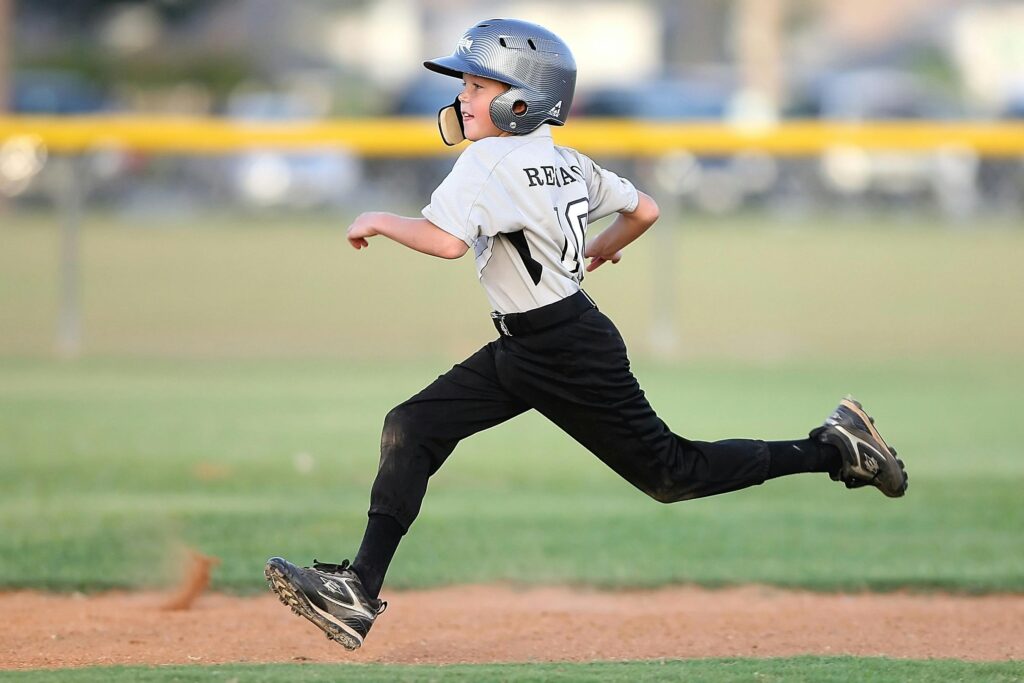
By this point, you may be wondering whether the sports activity your child does really requires a mouthguard or not. The Australian and American Dental Associations non-extensive list of sports that come with a recommendation for mouthguards include the following:
|
|
|
If your child’s sport activity doesn’t fall under this list but you feel like they’re active enough to need one… This is your reminder that as their parent, you’re the best person to decide!
Generally, a custom-made sports mouthguard will check all the boxes needed for the best quality. But if you’re looking for alternatives to save cost, here’s a quick checklist of features in a good quality sports mouthguard:
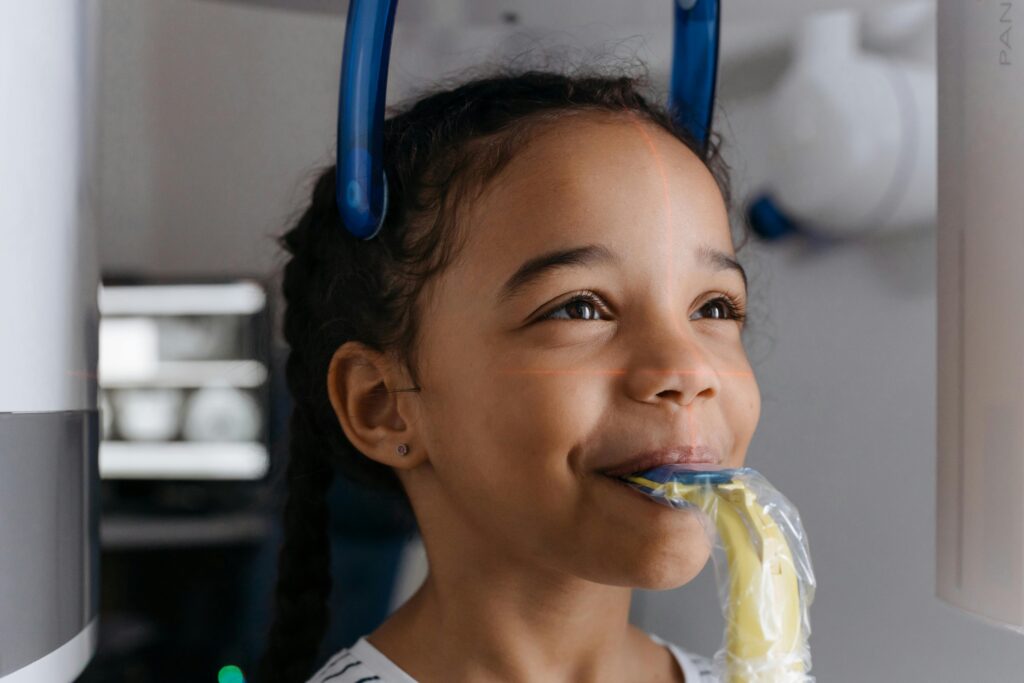
It takes two to reap the benefits of a good sports mouthguard – the parent who gets the mouthguard, and the child who complies to using it! There are plenty of ways to make wearing a sports mouthguard appealing to kids. Here are some of our ideas:
For children, participating in sports isn’t just a physical experience, it’s a social one too. Wearing a mouthguard during sports can ultimately help them feel confident among their peers, knowing their smile is well-protected.
Sports mouthguards are not just for show; they are essential for safeguarding your child’s dental health and overall well-being during sports activities. From preventing dental injuries to boosting confidence and enhancing performance, the benefits of wearing a sports mouthguard are undeniable.
At Smile Place Dental, we offer custom-made sports mouthguards that provide superior protection and comfort.
Whether you opt for an entry-level or professional-grade mouthguard, ensuring a proper fit and comfort is key. Invest in your child’s smile and peace of mind by choosing a sports mouthguard that suits their needs and sports activities.
At Smile Place Dental, our highly trained dentists will provide you with a properly fitting custom-made sports mouthguard that doesn’t just protect your child’s teeth, but also feels way more comfortable compared to anything you might find ready-made in a store.
What’s more, if you’re an active parent, we make custom sports mouthguards for both children and adults, ensuring your mouths are protected while playing your favourite sport.
1. What age should kids wear a sports mouthguard?
Kids can start wearing sports mouthguards as early as age 6 or as soon as they begin participating in activities where there’s a risk of dental injury. This typically includes any high-impact or contact sports. Consult with a dentist for personalised advice based on your child’s dental development.
2. Is a sports mouthguard necessary for non-contact sports?
Non-contact sports pose a lower risk of dental injury compared to contact sports, but there’s still a potential for accidents such as collisions, falls, or being struck by equipment. Wearing a mouthguard for non-contact sports like baseball, softball, gymnastics, or skateboarding can help prevent unexpected dental injuries.
3. How often should sports mouthguards be replaced?
The lifespan of sports mouthguards varies based on use frequency, activity intensity, and material. Regularly used mouthguards may lose thickness, compromising protection. For growing children, replacements every six months may be necessary due to dental changes in their dental development and mouth structure. Regularly inspect their mouthguard for wear and tear and replace it if damaged or ill-fitting.
4. Are sports mouthguards safe for kids?
Sports mouthguards are specifically engineered for safety and are safe to wear when they are custom-fitted to your child’s mouth and teeth. Choosing a high-quality mouthguard crafted from professional-grade dental materials ensures both comfort and the absence of harmful substances like BPA.
5. Can kids wear a mouthguard with braces?
Yes, kids can wear a mouthguard with braces. Custom-made mouthguards can be specially designed to accommodate braces while providing adequate protection against impact.
6. Is there a difference between a sports mouthguard and a night mouthguard?
Yes, there’s a difference between a sports mouthguard and a night mouthguard. A sports mouthguard is designed for protection against impact during sports activities, while a night mouthguard is worn during sleep to prevent teeth grinding or alleviate symptoms of temporomandibular joint disorder (TMJ). Each serves a specific purpose and has distinct features tailored to their intended use.
7. How do I clean a sports mouthguard?
To clean a sports mouthguard, rinse it with cool water after each use and brush it gently with mild soap or toothpaste. Rinse it thoroughly again and store it in a clean, ventilated container. Avoid hot water or harsh chemicals, and consider soaking it occasionally in a water and mouthwash mixture for extra freshness.
Author Summary – Dr Chitra Rao

Dr. Chitra Rao has over a decade of experience in dentistry, specifically in the field of cosmetic and orthodontic treatments. Dedicated to achieving optimal results, she takes a detailed and personalised approach to creating beautiful, confident smiles for her patients. Outside of dentistry, Dr. Chitra enjoys staying active, traveling, and spending time with her family.

Struggling with bad breath? You’re not alone.
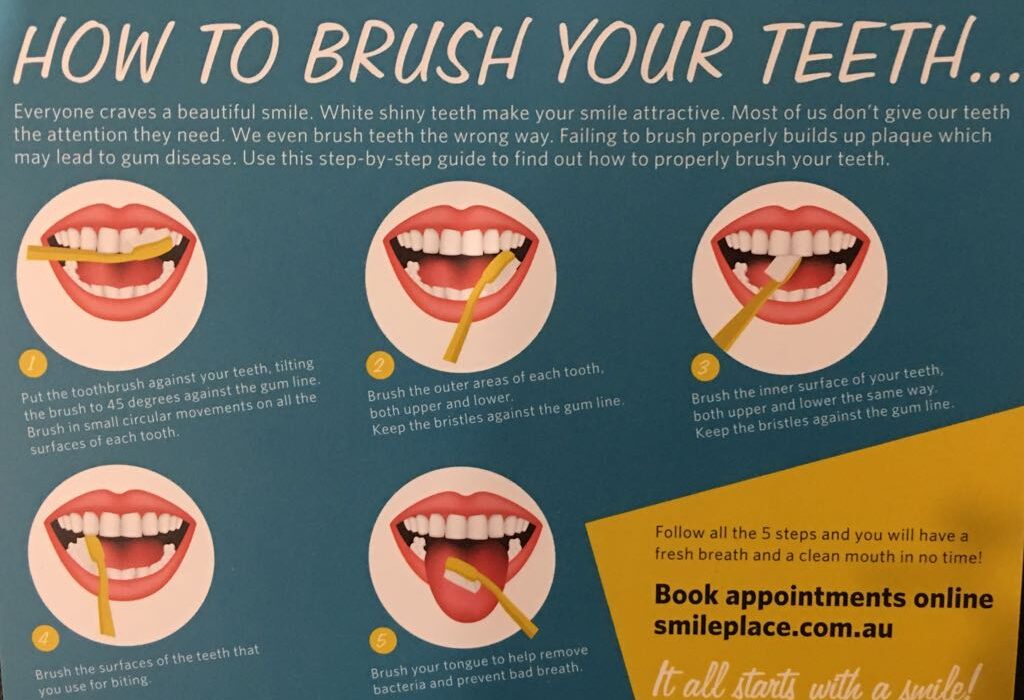
Keep it clean, keep it bright with these simple tips.
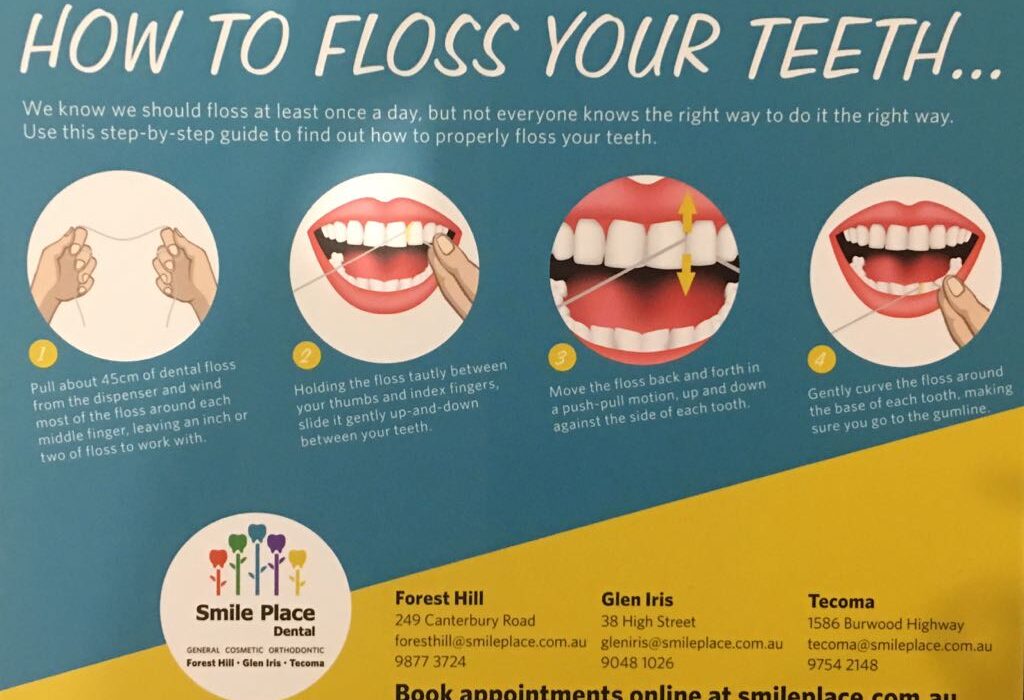
Do you brush twice a day, use a mouthwash, and still struggle with bad breath or surprise cavities? If so, the problem may be caused by inconsistent flossing. Most people skip flossing and those who do floss, often don’t do it right, leaving behind plaque and food debris. The good news? Flossing properly takes just […]